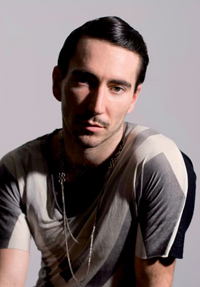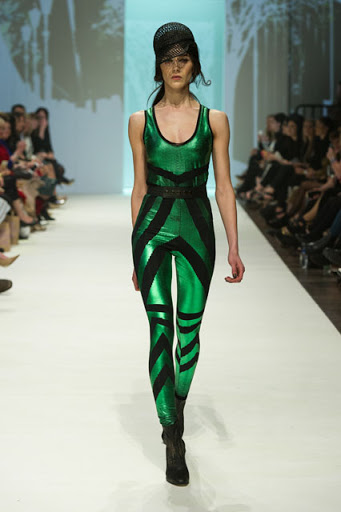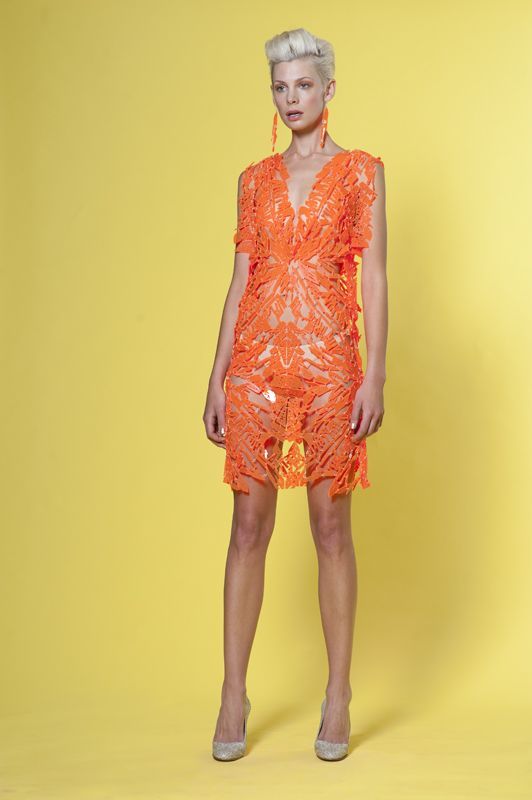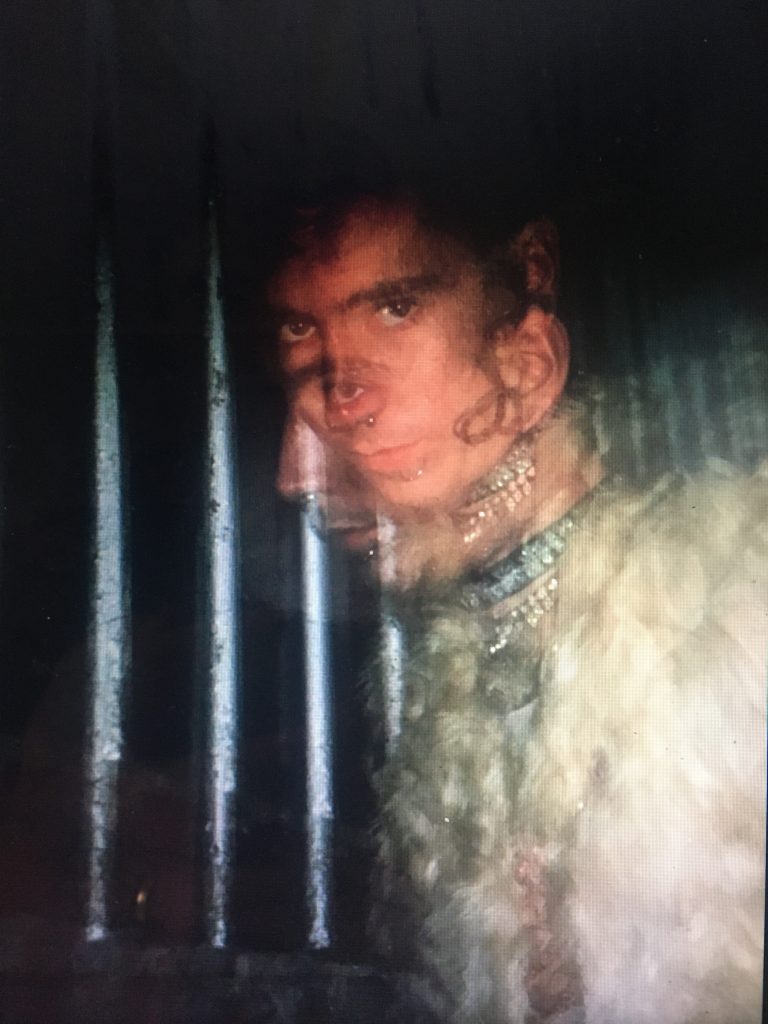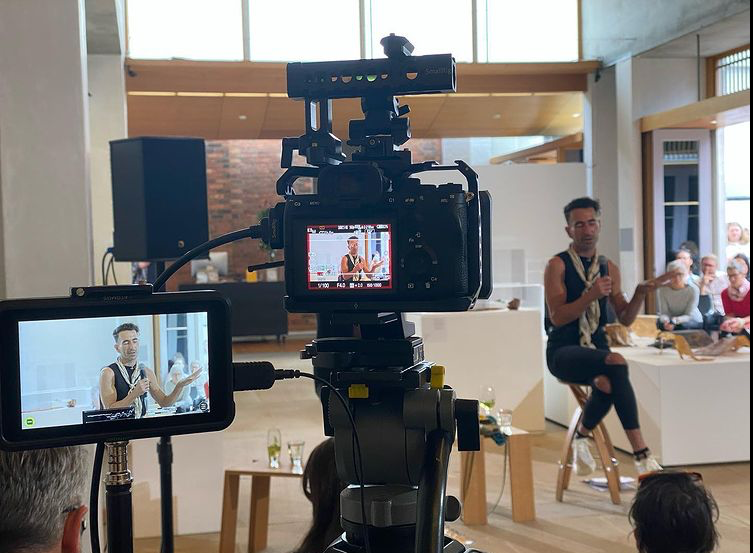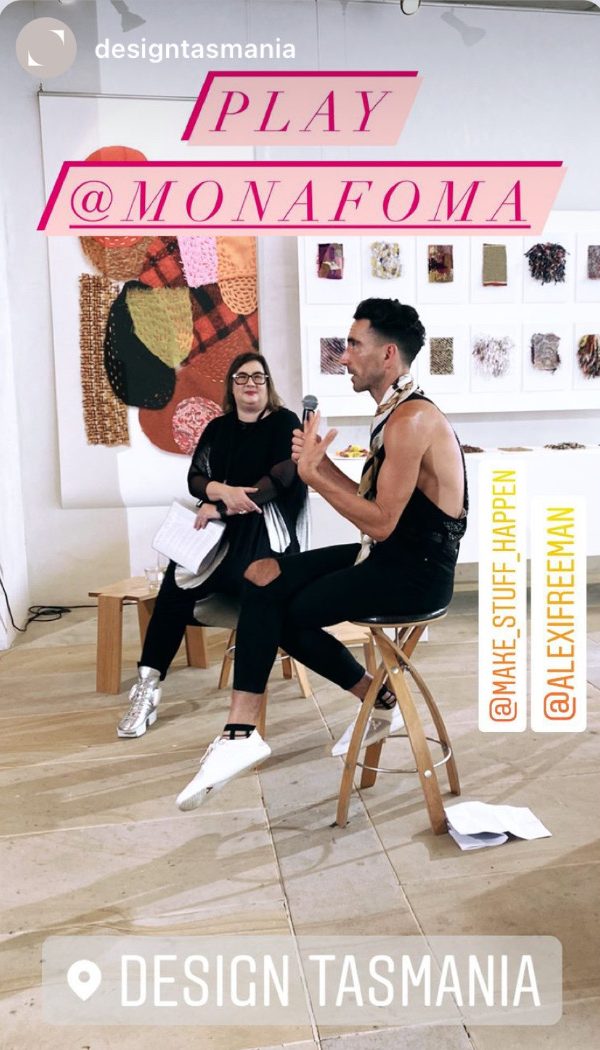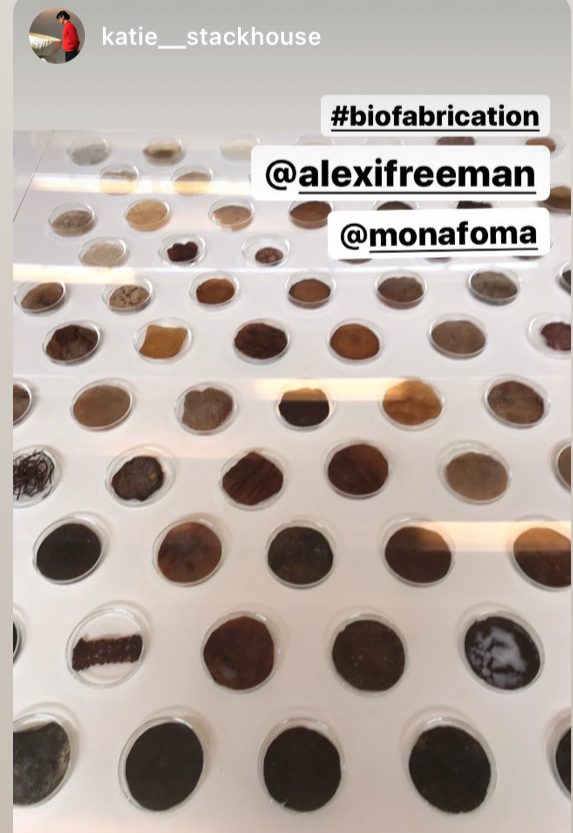Creations of a fascinated mind
Creations of a fascinated mind
Alexi Freeman is a charismatic and talented creative with a philosophical mind. The Hobart-born designer has been thinking about the environmental impacts of fashion for decades. He’s doing a Masters in Biodesign to develop more sustainable design materials.
His ideas emerge from a deep fascination with nature and how humans can harmonise with the natural world. An original thinker, Freeman’s body of work emerged from an unusual background. His parents make an unlikely combination, a Russian Jew from the Bronx and the daughter of a soldier brainwashed by the Nazis. But Freeman doesn’t shy away from complexity.
Early stirrings in Hobart
Growing up as a post-punk teenager in Hobart, Freeman began designing clothes. He started because he was tall and lanky and struggled to find clothes he felt comfortable in. Later he would find fashion embodied his love of art, design and cultural identity.
“My teachers knew about my fascination with making art wearable but no one ever discussed it as a potential career path. Back then, it hadn’t even dawned on me that fashion design was a thing I could pursue as a profession, so I enrolled in art school.”
Once he started designing clothes, friends asked him to design and make their clothes too. This led to the launch of his eponymous label at the end of the 20th century.
A fascination with materials
At art school, another student encouraged Freeman to research Haute Couture and suggested that he may want to start a ‘house’. As the years rolled by, Freeman felt increasingly drawn to that field.
He explains, “Fashion shares creative synergies with art, but I became obsessed with design due to the way we live with it. We’re not removed from it the way we are with most art.
From tribal cultures to contemporary society, human life is linked to textiles. From the cellulose embedded in the rubber tyres of vehicles to the bristles of the toothbrushes we use to brush our teeth. From people sleeping rough to the most ostentatious displays of wealth. All humans use textiles to protect themselves and engage with the elements.
As a teenager, my favourite ‘blue’ jumper had been washed so many times it was no longer blue. Our clothes grow with us, beautifully embodying the passage of time.”
Daring to be different
From an early age, Freeman embraced his difference. His parents shared an incredible love story from opposite sides of the tracks. His father Jules has Russian/Ukranian Jewish heritage and grew up in the Bronx.
Jules moved to West Berlin to practice as a chiropractor (then seen as an Avant-Garde profession). He fell in love with Freeman’s mum, Ute, the daughter of a former Nazi soldier.
Freeman’s maternal grandfather had been brainwashed and forced into conscription by the Nazis. He was captured by the Russians and sent to prison camp in Siberia. He survived and returned to Berlin. When his daughter went on to chose a Russian Jewish partner, it created a deep fissure in their relationship.
The young couple migrated to Tasmania to make a fresh start. Freeman grew up with three much older siblings. His mother converted to liberal Judaism before he was born. Freeman’s older brothers were circumcised and had bar mitzvahs. But both brothers then left Judaism and became born-again Christians.
After that, young Alexi was allowed to carve out his own path free from religious obligations. It gave Freeman the freedom to become innovative, unorthodox and uninhibited.
He reflects, “Being born in the land we now call Australia it intuitively made sense to follow a more secular path. Even so, I retain a deep love of the Hebrew language and Jewish customs. And the way they integrate ancient culinary practices with their spiritual festivals.”
Freeman is a broad-minded thinker, artist, and designer. He comfortably sits outside formal boundaries.
Freeman divulges he’s never been overtly masculine or feminine, but quips he’s “gay on the streets, straight beneath the sheets.”
A designer in isolation
During this interview, Freeman was in the midst of lockdown in Melbourne. To an extent, he felt isolation suited him. He cherishes a lot of time alone to create, process and garden, before he builds energy to share with other people. Still, the lockdown did take its toll.
The Australian Design Centre asked Freeman to share a glimpse into his lockdown diary. In it, he talks openly about finding the early stages of the pandemic ‘legitimately terrifying’. He admits to minimising contact with others beyond lockdown protocols.
Less is more
For the last 20 years Freeman has poured his immense talent into bespoke fashion.
“When I started my label around 2000 a lot of fashion industry manufacturing was already leaving Australia. My peers were heading to China, Indonesia and Thailand. They went anywhere that you could access lower wages to produce cheaper products. But I never wanted that kind of high-volume outcome for my creative outputs so I went the other way. I began focussing on bespoke. The less I produce the better.
“I’d much rather spend a week, or even months, designing and producing one heirloom piece, than mass producing garments designed to be obsolete within a season. I’m interested in the artisanal end of the fashion spectrum. Things that simply can’t be mass-produced or engineered and with the capability for the piece to grow with you, over time.”
This fascination in Slow Fashion led the designer to a Research by Practice Masters at RMIT. He’s exploring how to improve the ecological qualities of textiles.
Some outcomes have been presented at NGV Melbourne Design Week, MPavilion and the Mona Foma Festival in Tasmania. Another presentation is due to be launched in June at RMIT Gallery, in a group show called Future U.
“I’m endeavouring to make the most ecologically relevant design materials possible. I’m looking into slow methods of food production, such as fermentation, as possible methods of producing eco-relevant fashion materials.”
Reflecting on his work to date, the forward-looking designer is pleased with his choices:
“In my own tiny niche in this universe I feel I’ve made a small but positive impact. I sleep well at night, knowing that I’ve invested my energy into people and causes that I truly believe in. I feel blessed to have a lot of wealth in my life, not necessarily the type of wealth we get taxed on, but I feel rich in experiences that can’t easily be counted.”
Watch the Fashion Unites 2021 film featuring Freeman’s work here.
Images: primary image Alexi Freeman as a teenager, with ‘peyot’, from top to bottom Alexi Freeman, SS12/13 green jumpsuit, orange dress, Freeman as a teenager, a top he made from rags. Bottom three images show Freeman at Design Tasmania for Mona Foma.
Sara Tiefenbrun, for Multicultural Museums Victoria, 2021
